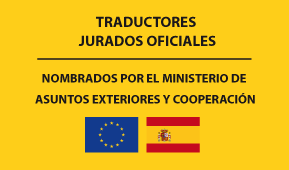The legal translation consists of translating legal documents, whether public or private, from one language into another.
Legal texts are characterised by the fact that they are written by legal professionals, which is why it is necessary for the translator to have specific training in legal translation in order to be able to translate the large number of legal concepts that usually appear in these texts into another language. The proper translation of these concepts is essential, as the legal effects of the documents derive from them.
In legal translation, more than in any other field, the concepts to be translated are often specific to one legal culture and do not always have a direct equivalent in the other. In other words, each legal system has its own characteristics, jurisdictions and professions.
In the case of legal translation, it is not enough for the translator to be fluent in both languages and to have extensive experience in translation, but he or she must also be familiar with the legal systems of the countries in which the “translation bridge” is to be built, that of the original text and that of the country of the language into which it is translated, in order to avoid making mistakes that could have legal consequences for the recipients of the translation.
At Traduspanish, legal translation is carried out by native specialists, most of whom are law graduates, who also have extensive experience and expertise in translating texts in their fields of specialisation.
If required, at Traduspanish we also offer sworn translation services of all types of documents.



Legal translation covers a wide range of legal documents, from commercial contracts and legal agreements to intellectual property documents, legal reports and legal correspondence. Each type of document has its own specific characteristics and requirements, so legal translators must adapt to each case and apply the appropriate knowledge and skills to achieve an accurate and quality translation.
The specific documents that require legal translation may vary depending on the jurisdiction and the purpose for which the translation is needed. However, here are some common examples of documents that often require legal translation:
Contracts and agreements;
Court documents;
Intellectual property documents: patents, trademarks, copyright registrations, and related documents;
Immigration documents: passports, visas, birth certificates, marriage certificates, divorce decrees, and other immigration-related documents;
Legal opinions and memoranda;
Translation of laws, statutes, regulations, and bylaws may be necessary for the purpose of understanding and complying with legal requirements;
Financial statements, annual reports, shareholder agreements, and other business-related documents may require legal translation;
Insurance policies and claims;
Wills and trusts;
Certificates and licenses.

Complete the quote form or send us an email and we will send you a professional translation quote as soon as possible.

